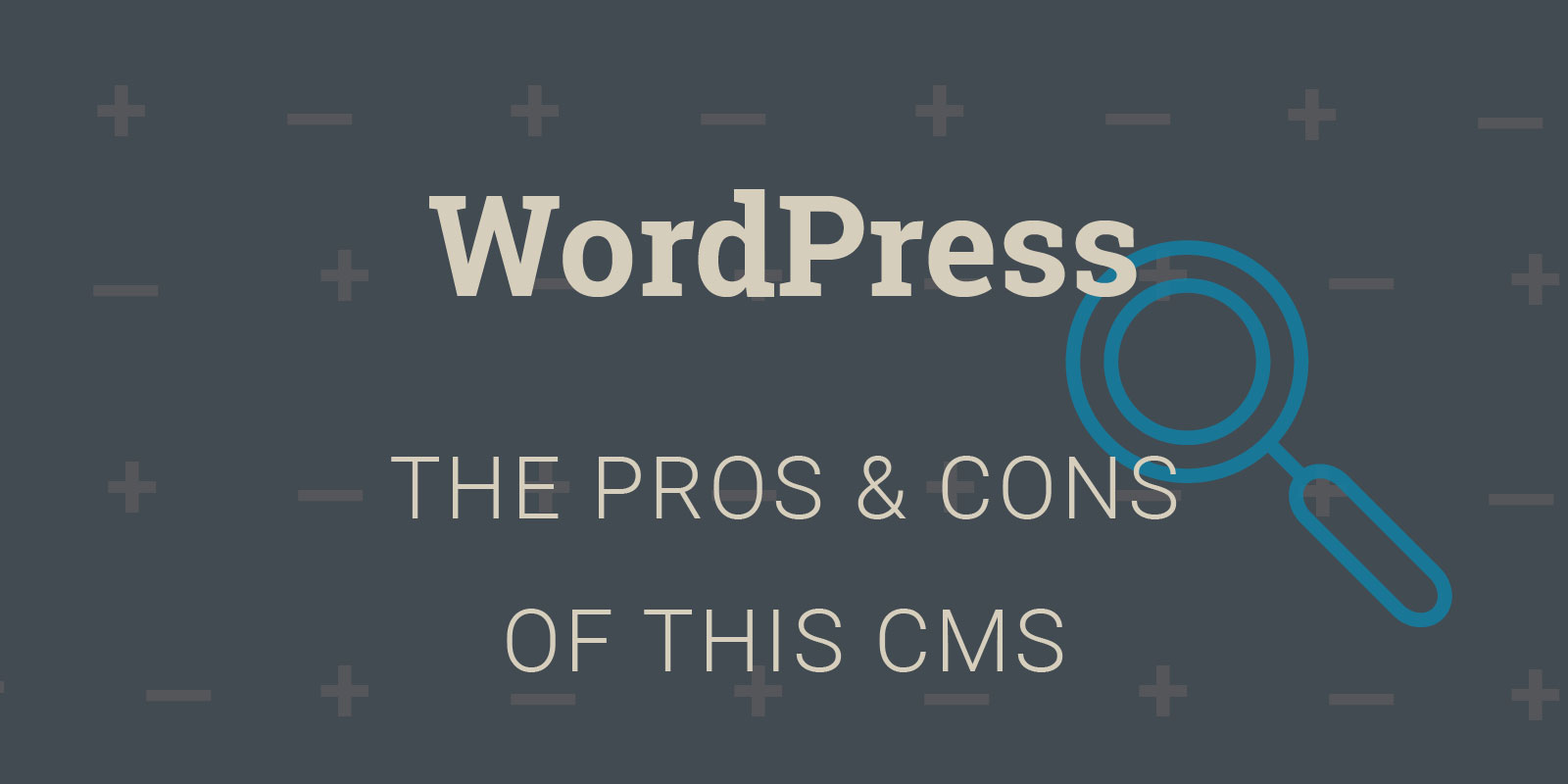The Pros and Cons of Choosing WordPress for your Website CMS
Lisa Hirst Carnes | April 2024
 Since its humble beginnings in 2003 as a blogging platform, WordPress has evolved into the most dominant CMS in the market. With a staggering 43.2% of websites powered by WordPress as of March 2024, it’s clear that WordPress has not only established itself but also excelled in the industry.
When choosing a platform to build your website, we’re fans of WordPress highly recommend it. But WordPress isn’t the only option. Evaluating what CMS is best for you and your needs is still best. This blog post covers the pros and cons of WordPress.
Since its humble beginnings in 2003 as a blogging platform, WordPress has evolved into the most dominant CMS in the market. With a staggering 43.2% of websites powered by WordPress as of March 2024, it’s clear that WordPress has not only established itself but also excelled in the industry.
When choosing a platform to build your website, we’re fans of WordPress highly recommend it. But WordPress isn’t the only option. Evaluating what CMS is best for you and your needs is still best. This blog post covers the pros and cons of WordPress.
Pros of choosing WordPress
User Friendly CMS
One of the key strengths of WordPress is its user-friendly interface, a legacy of its blogging origins. Navigating the backend, editing pages, and uploading new content are straightforward tasks for admins and editors. Even without extensive website management knowledge, WordPress empowers you to organize your content easily.
Plugins
There are nearly 60,000 mostly free and paid plugins available to WordPress users. These plugins allow you to customize and enhance any WordPress site. If you need to make specific changes to the functionality on your site, chances are there is a plugin to do just that. Check out our guide on assessing plugins’ quality to ensure they don’t hurt your site’s security.
SEO
With over one billion websites on the internet, SEO (search engine optimization) is more vital than ever before, and there are some very robust SEO plugins available to help optimize content, target keywords, add page titles and meta descriptions, and more—our favorite WordPress plugin in Yoast SEO.
Access to free plugins like Yoast means each WordPress site is SEO-ready. There isn’t a better platform than WordPress for SEO.
Responsive
Responsive websites are necessary; just under 60% of website traffic comes from mobile devices. Responsive websites ensure a good user experience no matter the device. This type of seamless user experience also positively impacts visibility in search because search engines favor mobile-friendly websites.
WordPress is ideal for creating responsive sites because it offers a wide array of themes and plugins designed with responsiveness in mind. Themes like Kadence, one of our favorites, are built to be naturally responsive, ensuring that your website looks great and functions well on any device.
Open-Source
“WordPress is an open-source software, and anyone can use, study, change and redistribute its source code” (WPBeginner). Many of the themes and plugins are accessible under the GPLv2 license, and being an open-source software, WordPress programmers can share code online openly. The sharing of code can result in the ability to save a lot of developing time and costs by using an existing code.
Using an open-source platform is also valuable when working with a 3rd party partner or agency to develop your WordPress website. You won’t be stuck working with proprietary software that only a small group of developers can work on. There are lots of WordPress developers out there that have the ability to support your website if you ever need to change partners.
Now, why WordPress isn’t always the best fit (and what to do in that case)
Updates
Installing updates is vital to the health of your WordPress site but can cause problems if not done thoughtfully. Some WordPress themes are updated and improved often. These updates are essential to maintain the highest level of security on WordPress websites. Sometimes, updates create issues for a website, so you may have to revert to an older WordPress version.
To prevent this, at ArcStone, we vet updates before implementing them across clients’ sites and keep a close eye on each site after installing the update. For this reason, it’s best to have a professional host and support your WordPress site, especially if you don’t have a developer or IT team.
Vulnerability
Being an open-source platform, WordPress is attractive to potential hackers. You can mitigate vulnerabilities wisely by choosing plugins and themes for your WordPress site. We recommend assessing the quality of a WordPress plugin and installing it with caution.
Speed
Some themes contain a lot of unnecessary generic code. This can decrease the speed of the site and cause slow load times. Without WordPress experience, it can be challenging to understand what code you need and what you can do without. Again, this is something an agency like ArcStone can help you navigate.
We recommend the Kadence WordPress framework because it offers a compelling array of features that fill the needs of most of our nonprofit clients. One of the standout benefits of Kadence is its speed and performance. Kadence is designed to be lightweight, ensuring your website loads quickly, which is crucial for user experience and SEO.
Customization
We all hesitate to invest in customization, as it can get expensive. WordPress is a flexible platform, unlike many other drag-and-drop web builder tools. However, this can be an issue if you aren’t a WordPress expert and haven’t had one develop your site.
We understand this is a lot to consider. That’s why we always recommend consulting with a WordPress expert when considering a new website. Many of the cons listed above may alleviated with the right person and/or agency managing your website.
If you want to learn more about ArcStone, please get in touch with us today. We offer WordPress hosting, support, strategy, digital marketing, website redesigns, and website refreshes.
Additional Resource
MUST READ: 11 Best Website Builders for Nonprofits (2021)
 Since its humble beginnings in 2003 as a blogging platform, WordPress has evolved into the most dominant CMS in the market. With a staggering 43.2% of websites powered by WordPress as of March 2024, it’s clear that WordPress has not only established itself but also excelled in the industry.
When choosing a platform to build your website, we’re fans of WordPress highly recommend it. But WordPress isn’t the only option. Evaluating what CMS is best for you and your needs is still best. This blog post covers the pros and cons of WordPress.
Since its humble beginnings in 2003 as a blogging platform, WordPress has evolved into the most dominant CMS in the market. With a staggering 43.2% of websites powered by WordPress as of March 2024, it’s clear that WordPress has not only established itself but also excelled in the industry.
When choosing a platform to build your website, we’re fans of WordPress highly recommend it. But WordPress isn’t the only option. Evaluating what CMS is best for you and your needs is still best. This blog post covers the pros and cons of WordPress.
